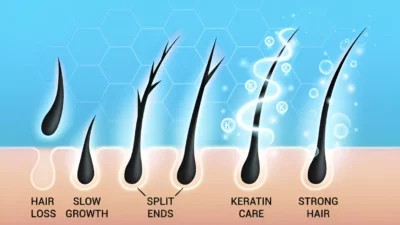As we age, aches and pains often become part of daily life, but persistent shoulder pain shouldn’t be something you simply accept. The shoulder is one of the most complex joints in the body. Over time, wear and tear can lead to conditions that limit mobility, affect sleep, and reduce your ability to enjoy everyday activities.
Understanding common age-related shoulder conditions and how to manage them can help you maintain an active, pain-free lifestyle well into your later years.
Common Shoulder Conditions That Come With Age
1. Rotator Cuff Tears
Rotator cuff injuries are among the most common shoulder problems in adults over 50. These tears can occur from repetitive motion or simple degeneration of the tendons. Symptoms include pain when lifting your arm, weakness, and limited range of motion.
2. Shoulder Arthritis
Arthritis in the shoulder, particularly osteoarthritis, develops when cartilage breaks down, causing bones to rub together. This leads to joint stiffness, swelling, and chronic pain, especially during movement or at night.
3. Frozen Shoulder (Adhesive Capsulitis)
Frozen shoulder typically affects people between the ages of 40 and 70 and is more common in women. It starts with stiffness and limited range of motion, which gradually worsens over months. If left untreated, it can severely limit shoulder function.
4. Bursitis and Tendinitis
The natural aging process can cause inflammation in the bursa (fluid-filled sacs that cushion the joint) or tendons. This leads to pain during overhead activities, tenderness, and swelling.
Why These Conditions Happen With Age
Over time, the tendons and ligaments that support your shoulder begin to weaken. Cartilage thins, inflammation becomes more common, and healing takes longer. While some of this is unavoidable, certain health conditions, like diabetes or thyroid disorders, can accelerate shoulder degeneration.
Management and Treatment Options
Physical Therapy
A tailored program of stretches and strengthening exercises can enhance mobility, alleviate pain, and restore function without the need for surgery.
Anti-Inflammatory Medications
NSAIDs can help manage pain and swelling, especially in the early stages of arthritis, bursitis, or tendinitis.
Corticosteroid Injections
In some cases, a steroid injection can offer temporary relief from pain caused by inflammation. These are often used for conditions like frozen shoulder or arthritis.
Platelet-Rich Plasma (PRP) or Regenerative Therapies
These newer treatments may promote healing in tendons and soft tissues, particularly for individuals seeking to avoid surgery.
Surgery (When Necessary)
If conservative treatments fail, surgical options such as rotator cuff repair or shoulder replacement may be necessary, especially for severe arthritis or complete tendon tears.
When to Seek Help
If shoulder pain lasts more than a few weeks, disrupts sleep, or limits your ability to perform daily tasks, it’s time to see a specialist. Early intervention can significantly improve outcomes.
You’ll find expert care with orthopedic shoulder specialists in Chicago, IL, who understand the nuances of treating shoulder conditions in aging adults. These professionals can assess your condition, create a customized care plan, and assist you in regaining comfort and function.
Staying Active as You Age
Shoulder health doesn’t have to decline with age. With proper stretching, posture awareness, and early treatment, you can protect your joints and maintain mobility. Don’t ignore persistent shoulder pain, taking action now can prevent long-term complications later.
Whether you’re struggling with stiffness, pain, or reduced movement, expert guidance is just a consultation away.

Lexy Summer is a talented writer with a deep passion for the art of language and storytelling. With a background in editing and content creation, Lexy has honed her skills in crafting clear, engaging, and grammatically flawless writing.



